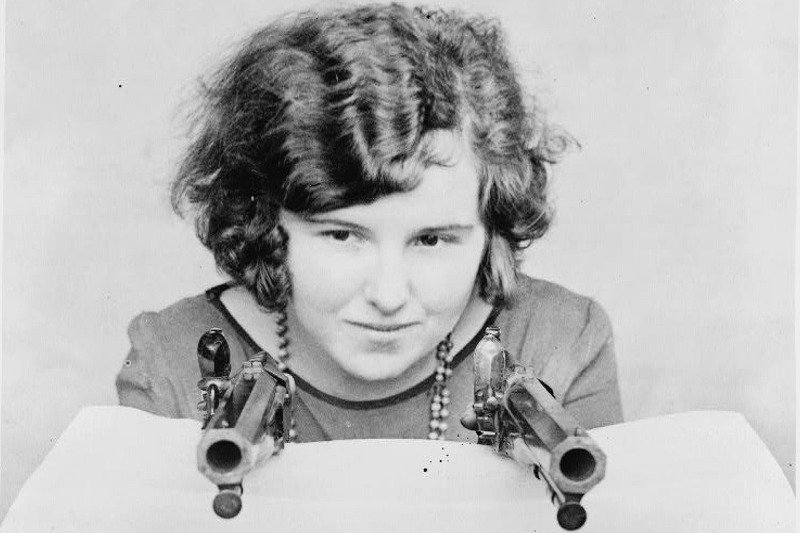What A Temper! The Andrew Jackson Duels
The seventh president the United States had a temper described as volcanic, and the Andrew Jackson duels have become the stuff of legend. By some estimates, Jackson participated in, or challenged men to, as many as one hundred duels. He is the only president know to have killed a man in a duel.
Jackson’s first recorded duel was in 1788 when he was a young lawyer facing skilled attorney and veteran of the Revolutionary War, Waightstill Avery, in a civil suit. When Avery turned one of his arguments on its head, Jackson felt humiliated and became incensed.
In court, Avery frequently referenced Francis Bacon’s text, ‘The Elements of the Common Laws of England’. Jackson decided to exact his revenge by replacing the book (in Avery’s saddlebag) with a side of bacon.
Things quickly spun out of control. Avery chastised Jackson for his childish behaviour, and Jackson responded by accusing Avery of accepting illegal payments. They argued back and forth until Jackson tore a page from a law book and issued Avery with a written challenge to duel.
The following day, when it became clear that Avery had not taken the challenge seriously, Jackson reissued the challenge, and Avery agreed to meet him for a duel that evening.
Both men arrived at the appointed time and place with their seconds. Seconds often saw their duties as being last minute arbiters of peace, and they were able to convince both duelists that honour would be satisfied if Jackson and Avery fired their single shots into the air. They did so and resolved to become friends.

Andrew Jacksons Duelling Pistols | The National Museum (1926)
Andrew Jackson’s feud with Tennessee governor, John Sevier, was a very shabby affair. When Sevier was reelected to office in 1803, Jackson was in command of the Tennessee Militia. The two men detested each other. During the election campaign, Jackson had accused Sevier of bribery and fraud.
Following his inauguration, Sevier came face to face with Jackson in Knoxville, Tennessee. A heated exchange degenerated into name calling. When Sevier insulted Jackson’s wife, shots were fired, and Jackson had to be led away from the scene. The following day, Jackson sent Sevier a letter challenging him to a duel and Sevier accepted.
Jackson arrived at the agreed time and place, but Sevier was nowhere to be seen. Jackson left when it seemed obvious that Sevier wasn’t going to show up. But, on his way back to Knoxville, Jackson came across Sevier’s party stalled on the road.
Jackson charged Sevier on horseback, and Sevier fell from his horse which then ran away with his fire arms. Stunned, Sevier ran and hid behind a tree. Gun drawn, Jackson went after him.
Eventually, the seconds restored order and both parties agreed to leave the scene without further hostility.

Jackson’s best known duel was against Charles Dickinson, a rival horse breeder who’d accused Jackson of being a cheat and his wife of being a bigamist. Jackson was outraged and challenged Dickinson to a duel in writing. The duelists agreed to meet on May 30, 1806 at Harrison’s Mills on the Red River in Logan, Kentucky.
Both men arrived at the appointed hour with their seconds. Dickinson, an expert marksman, fired first wounding Jackson in the chest. To the amazement of his second, Jackson remained on his feet. Each man was entitled to take one shot, so Dickinson had to stand patiently and wait for Jackson to take his. Jackson paused, took very careful aim and shot the helpless Dickinson dead.
In Tennessee, there was widespread outrage over Jackson’s actions. He came to be regarded as a cold-blooded killer and, for a time, he was treated as a social outcast. However, Jackson was not charged with murder and the incident seemed to have little effect on his later popularity as a presidential candidate.
The musket ball that wounded Jackson was never removed. It affected his health for the rest of his life.
Conclusion:
If we learn anything from the Andrew Jackson duels it’s to be grateful that Jackson was never in charge of nuclear launch codes.
References:
HISTORY. (2009). Future President Andrew Jackson Kills Charles Dickinson in a Duel. [online] Available at: https://www.history.com/this-day-in-history/andrew-jackson-kills-charles-dickinson-in-duel [Accessed 27 Jan. 2020].
Finger, J. (2001). Tennessee Frontiers: Three Regions in Transition (History of the Trans-Appalachian Frontier). 1st ed. Indiana University Press, p.215.


